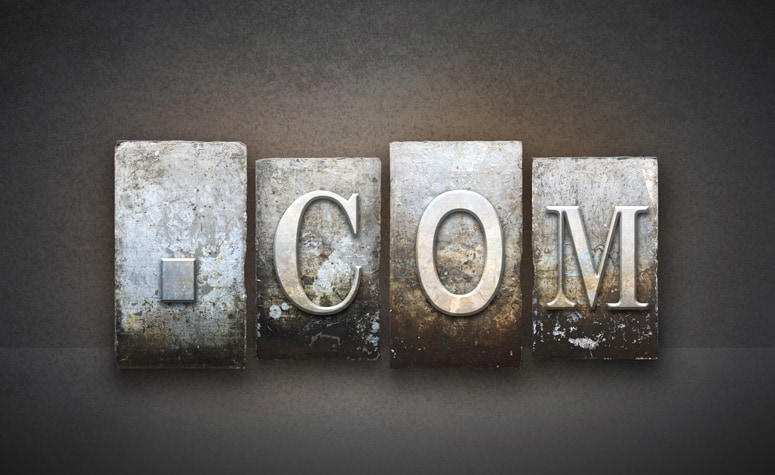Important Items to Consider
for Effective Web Design
Open the tabs below to learn more about the website design process.
Determine your goals and objectives
 Do you wish to create a new website? Or do you need to redesign an existing site?
Do you wish to create a new website? Or do you need to redesign an existing site?What is the goal of your website?
- Is it to generate sales?
- Position your company as experts in your field?
- Inform people?
- Promote sales from your brick and mortar store?
- Sell products online?
Create a realistic budget
 There are hard costs - several of which are ongoing - associated with owning a website, including the purchase of:
There are hard costs - several of which are ongoing - associated with owning a website, including the purchase of:- A domain - under $15 annually
- A hosting plan - starting at approximately $160 annually
- An SSL certificate - approximately $65 annually
Over the long term, your site should make you money, not cost more than it brings in. Having a specific budget in mind will help me to deliver your exact specifications while maximizing my time and efficiency.
Find an appropriate domain name
 Your domain name (www.YourBusinessName.com) is very important. Something short, to the point and easily remembered is typically best.
Your domain name (www.YourBusinessName.com) is very important. Something short, to the point and easily remembered is typically best.Choosing an intuitive, easily typed domain name will help your customers and potential clients find your site.
Use this handy tool to determine domain availability.
Analyze your competition
 Take the time to research your competition. What do you like or dislike about their websites?
Take the time to research your competition. What do you like or dislike about their websites? Spend some time looking around at what is out there and it will become apparent what constitutes good or bad design. Try navigating several sites as if you were a prospective client considering using that company.
Using those websites as a guide, determine which elements you would like to see incorporated into your own website.
Identify SEO (Search Engine Optimization) terms
 Search Engine Optimization is used to increase the number of visitors to a website by obtaining a high-ranking placement in the search results page of a search engine (Google, Bing, Yahoo, etc.).
Search Engine Optimization is used to increase the number of visitors to a website by obtaining a high-ranking placement in the search results page of a search engine (Google, Bing, Yahoo, etc.).Internet users typically will not click through pages and pages of search results. So, ranking high will be essential in directing more traffic to your site.
During your site’s planning stages, research the keywords that people currently use to find your industry, service and products. This way you can provide the necessary optimization tags and content as the website is being built.
Consider what specific content you want included on your website
 Preparing or updating content for your website can be a daunting, time-consuming task. However, content is what is going to both drive people to your website and keep them interested in coming back for more.
Preparing or updating content for your website can be a daunting, time-consuming task. However, content is what is going to both drive people to your website and keep them interested in coming back for more.A great first step is to start with a sitemap – which is simply a listing of all the pages or sections you’ll want to include on your website. For instance: Home, About Us, Our Team, Our Services, Shop, Tips & Tricks, FAQs, Contact Us, etc). Once you have a sitemap outlined, you can begin by adding bullet points under each item.
Having properly outlined content will help expedite the quote process and the implementation of your website.
BE BRIEF - when in doubt, cut it out!
 You have a very brief window - mere seconds - to capture the attention of your prospective client or customer. If you are unable to answer a user’s needs right away, your visitor will exit your site.
You have a very brief window - mere seconds - to capture the attention of your prospective client or customer. If you are unable to answer a user’s needs right away, your visitor will exit your site.The most effective sites feature clear, concise messaging. Say what you need to say in as few words as possible.
Logos, Images, graphics and videos
 Logos, images and graphics are essential components of website design. If your page is uninteresting to look at, it is unlikely your text will be read.
Logos, images and graphics are essential components of website design. If your page is uninteresting to look at, it is unlikely your text will be read.If you do not have a logo or images/graphics - no worries - just PLEASE reach out to me first. Modern web design calls for unique requirements where logos and images are concerned and a short conversation with me can save you time and money in the long run.
If you already have a logo, product images, graphics, videos, etc. please organize high-resolution versions for me.
Social media integration
 Integrating your website with social media – including LinkedIn, Facebook, Instagram, Twitter, etc. – is no longer a novelty, it is practically a requirement.
Integrating your website with social media – including LinkedIn, Facebook, Instagram, Twitter, etc. – is no longer a novelty, it is practically a requirement. Social media provides an avenue in which customers can promote your brand, provide reviews and stay in-the-know about your company’s latest news.
Social media outlets are a great way to share your content and attract new customers or clients. Your website should take advantage of this modern-day word-of-mouth advertising.
Collect customer reviews and testimonials
 Testimonials are intermediary, word-of-mouth marketing. When credible, they can provide much needed social proof that turns a wavering prospect into a paying client or customer.
Testimonials are intermediary, word-of-mouth marketing. When credible, they can provide much needed social proof that turns a wavering prospect into a paying client or customer.It is difficult to sing your own praises – and it rarely works when you do – but with testimonials you have a third party saying what you might not be able to.
If you already have a loyal customer base, reach out to a few and solicit reviews. In most cases, very brief reviews - no more than a few sentences - are highly effective.
Could you benefit from blogging?
 Company blogs are partners in websites these days.
Company blogs are partners in websites these days.If websites tell about the product or service, blogs tell about the people behind your company and/or the issues facing your industry.
You may want to consider starting a blog just after or even at the same time your website is launched.
Plan to keep your site fresh
 Content is king.
Content is king.Your site is your company’s face to the world. Outdated content leads visitors to think your business is inactive online. Your site should show that your company is up-to-date on industry trends and is actively engaged by regularly creating new content.
Having an up-to-date website, both at launch and in the future, will not only increase your search engine rankings but give customers and potential clients a reason to come back.
If I build it, he will come...?
 How is a Kevin Costner/Field of Dreams quote applicable to building a website?! Simple: A website is not an ‘if I build it, he will come’ type situation.
How is a Kevin Costner/Field of Dreams quote applicable to building a website?! Simple: A website is not an ‘if I build it, he will come’ type situation.It is important to remember that a website is just a part of your marketing plan – not your entire strategy.
Once you establish a website, you will then need to drive traffic to your site.

